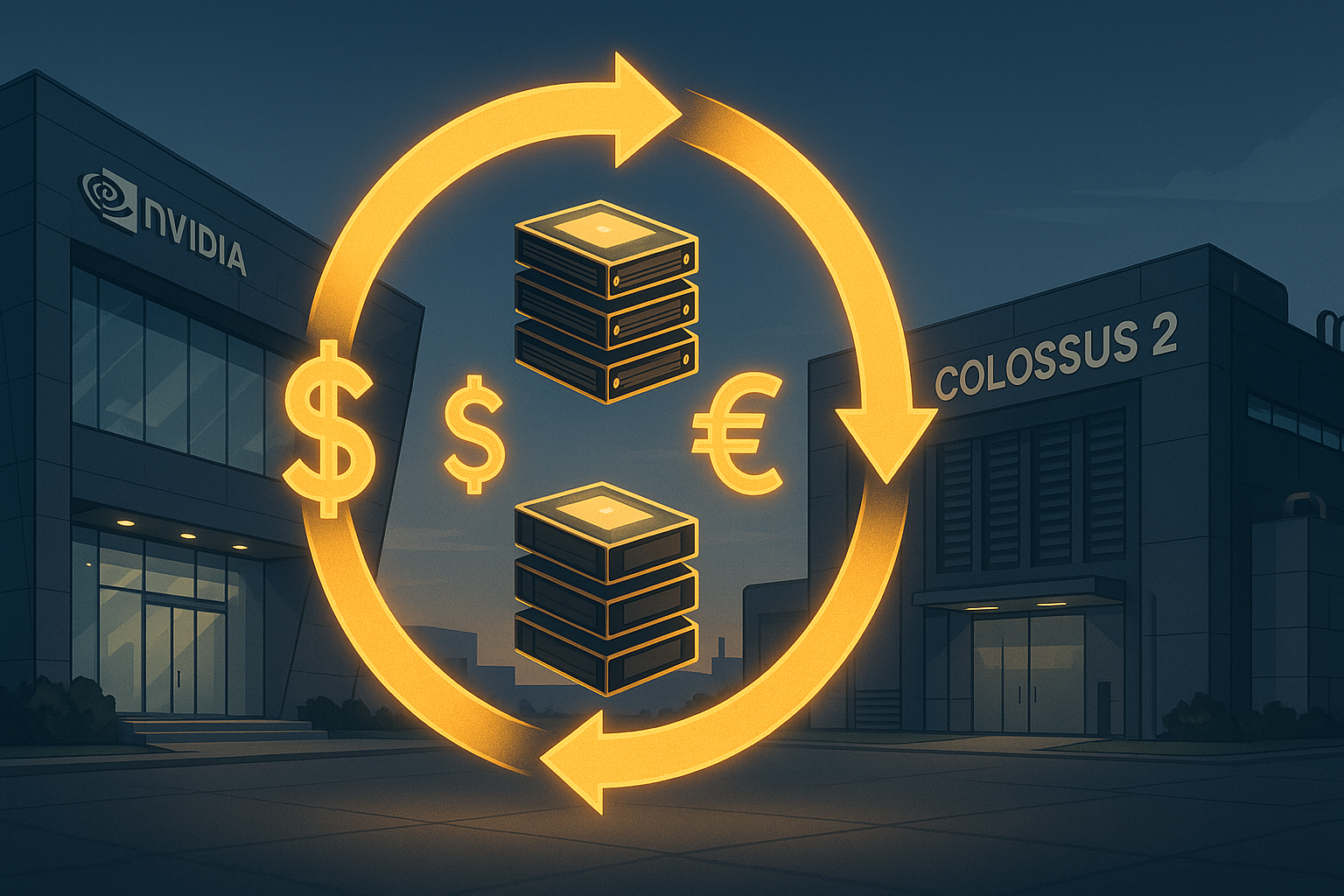In what might be the tech industry's most expensive game of financial musical chairs, Nvidia has committed to backing Elon Musk's xAI startup in a deal that's as complex as it is enormous.
The numbers are staggering. xAI is reportedly burning through about $1 billion monthly—that's not a typo—while raising a jaw-dropping $20 billion in funding. Do the math and you'll realize this operation is consuming roughly $33 million daily, a burn rate that would make even the most lavish dot-com era startups blush.
I've covered tech financing for years, and let me tell you, this isn't normal. Not even close.
The structure of the deal reveals the fascinating (and slightly concerning) relationship between chip suppliers and AI companies in today's market. Rather than simply investing directly, Nvidia is putting up to $2 billion in equity while also participating in a special purpose vehicle that will—wait for it—purchase Nvidia's own processors to rent back to xAI.
It's circular financing at its finest.
"This kind of arrangement ensures Nvidia wins regardless of whether xAI succeeds," explained a venture capitalist I spoke with last week, who requested anonymity to speak freely about the deal. "They're essentially financing their own customer."
Look, Nvidia isn't new to this game. The chip giant has been strategically backing companies that use its hardware for years. It's a brilliant business model when you think about it—create both the demand and the supply for your own products.
The physical manifestation of this investment will partly reside in a Memphis data center ominously named "Colossus 2." (The original Colossus, for those who skipped ancient history class, was a massive statue that famously collapsed. Perhaps not the most reassuring namesake?)
But what exactly does xAI offer that justifies such astronomical investment figures?
So far, their main product is Grok, a chatbot that distinguishes itself primarily by being willing to answer questions other AI systems won't touch and delivering responses with a distinctly snarky tone. It's certainly different—though whether it's $20-billion different remains an open question.
The timing couldn't be better for Musk. With OpenAI experiencing its share of internal drama and Google still figuring out how to monetize its AI offerings effectively, there's a potential opening in the market. And nobody capitalizes on opportunities—or investor enthusiasm—quite like Elon.
This funding round represents a broader pattern in AI development. We're witnessing perhaps the greatest capital expenditure rush since the railroad boom of the 1800s. Companies are pouring unfathomable amounts into digital infrastructure with increasingly uncertain returns. The gold rush analogy is overused but... damn if it doesn't fit perfectly here.
For Nvidia's leather-jacketed CEO Jensen Huang, the strategy makes perfect sense. By financing companies like xAI, Nvidia isn't just selling chips—it's cementing its position as the essential backbone of AI development.
"Nvidia is playing the long game," said Sarah Chen, technology analyst at Morgan Stanley (who I caught up with at last month's AI Summit in San Francisco). "They're essentially becoming the picks and shovels of the AI gold rush."
The question hanging over all this—one that even the most sophisticated AI models can't answer with certainty—is whether we're witnessing the foundation of computing's next revolutionary era or simply the peak of a spectacular bubble.
Either way, one thing's certain: the show will be expensive to produce, fascinating to watch, and—if history is any guide—will likely benefit those building the foundation more than those trying to create the flashiest applications on top of it.
For now, Musk continues his remarkable streak of raising massive capital when needed. In the face of a billion-dollar monthly burn rate, most executives would be slashing costs frantically. Musk? He just raises twenty times that amount.
It's either genius or madness. Possibly both.
